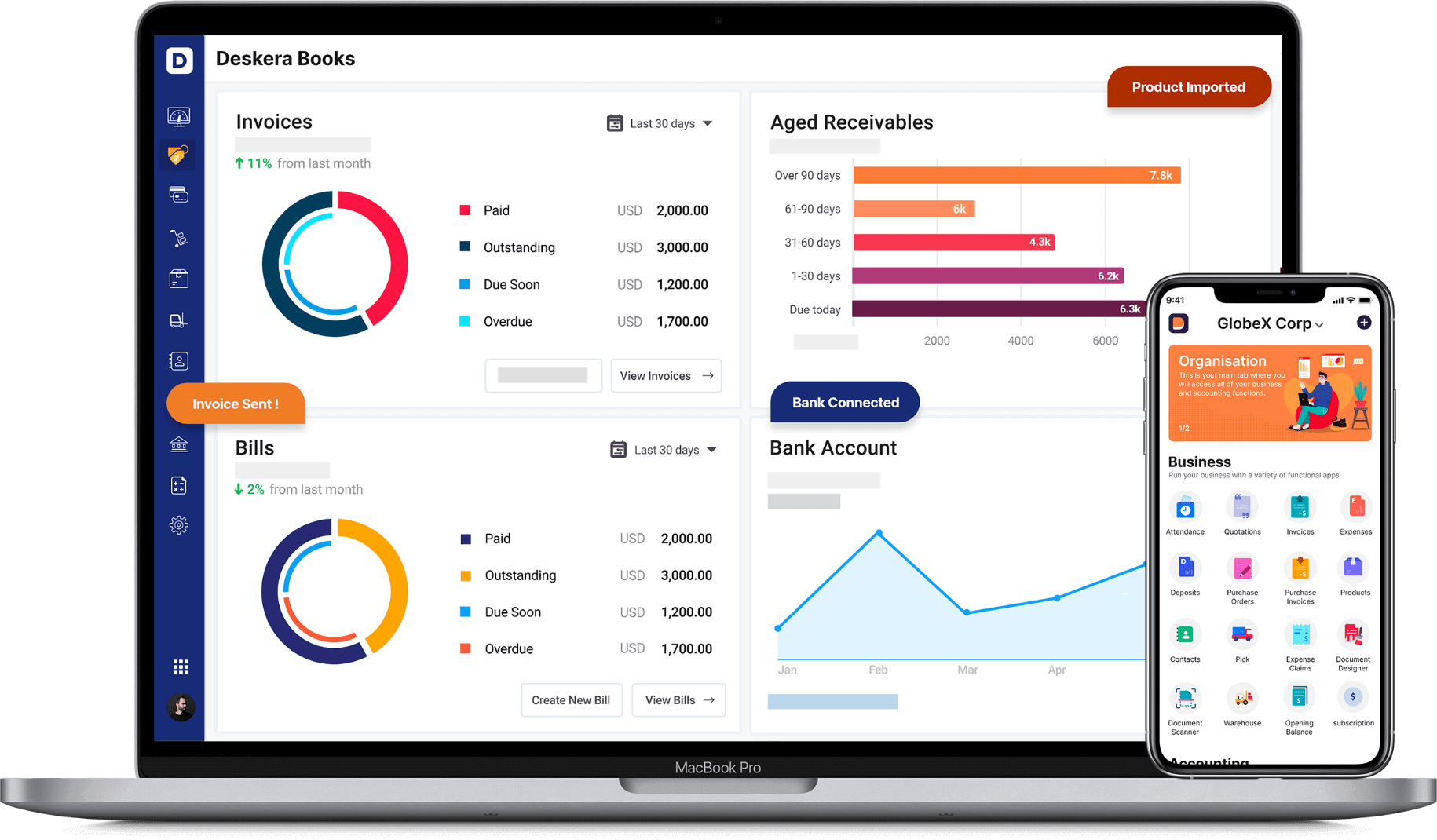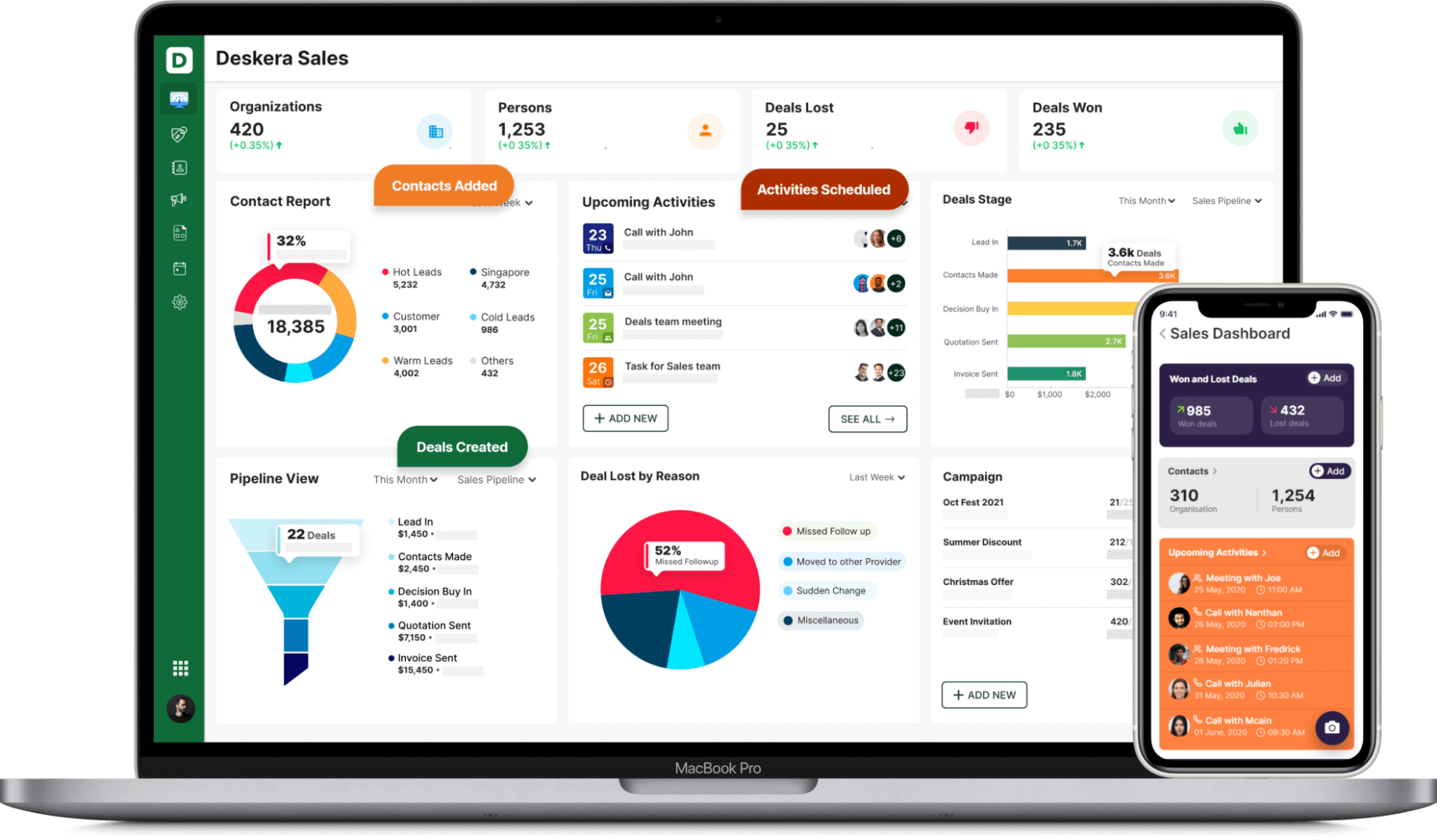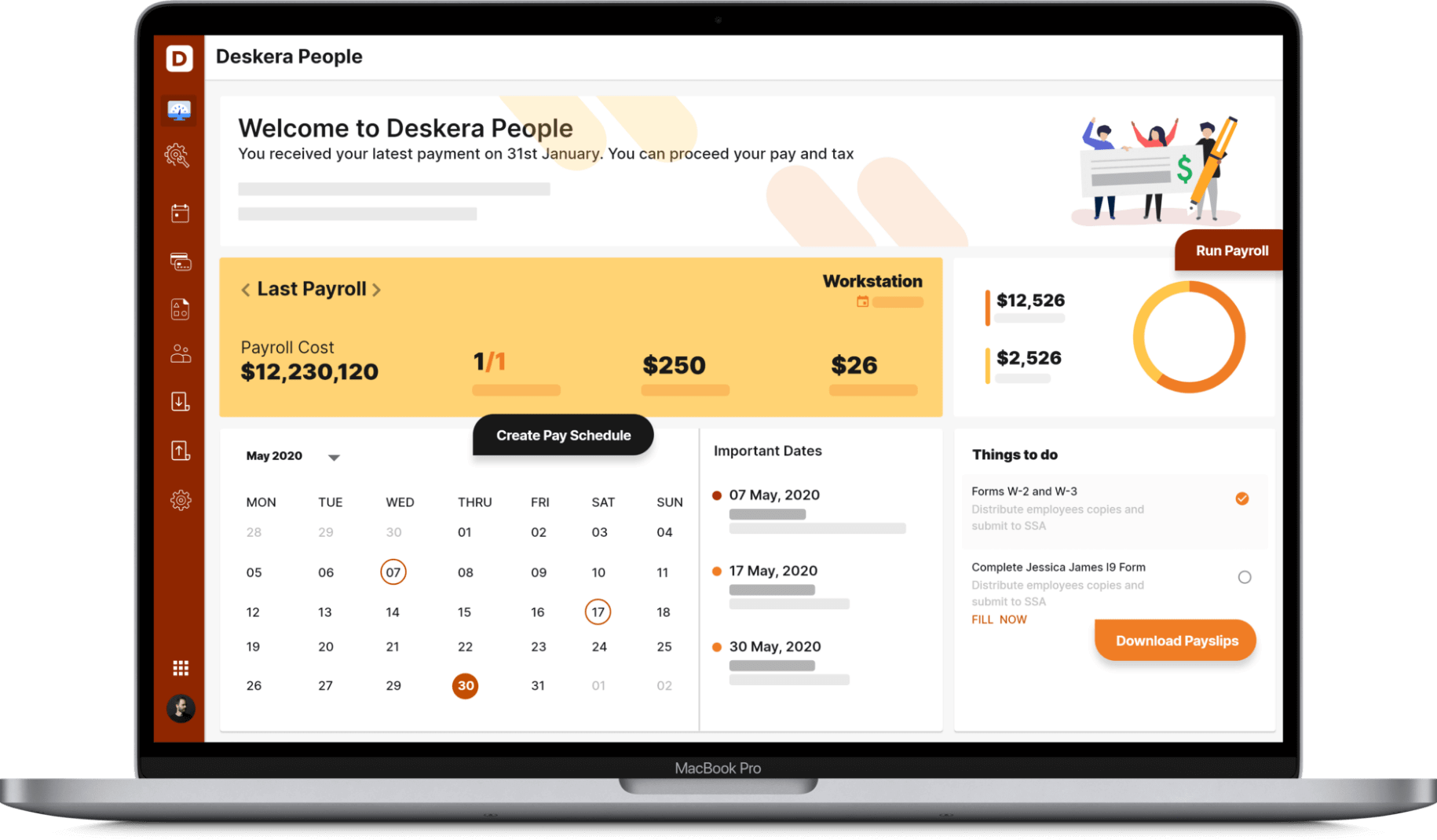At around $717 billion, the US Media and Entertainment (M&E) industry is the largest in the world as it represents one-third of the global Media and Entertainment industry. When measured by revenue, the market size of the Arts, Entertainment, and Recreation Industry of the USA amounted to $372.0bn in 2022. In fact, in 2022, the market size of the Arts, Entertainment, and Recreation is expected to increase by 24%.
However, though the market size of the USA's Arts, Entertainment, and Recreation industry has grown by 1.5% per year on average between 2017 and 2022, this growth is slower than the overall growth observed in this sector. This is mainly due to the challenges faced by this industry, especially after the considerable slowdown that it faced during COVID-19 and its restrictions.

Despite taking that hit from COVID-19, the US film industry is expected to experience a CAGR of 8.3% between 2021 to 2027. In fact, due to the sheer size of this industry in the United States, 2.5 million people rely for their employment on this industry, with the film industry paying $188 billion per year in total wages.
While the COVID-19 pandemic had a substantial negative impact on all these figures, and it brought about profound changes in the buyer personas and, therefore, marketing strategies of the businesses in this industry, it also had its own set of opportunities waiting to be grabbed. For instance, online streaming services are expected to experience a CAGR of 21.0% from 2021 to 2028, which is significantly larger than the 8.3% expected from the overall film industry.
When it comes to it, Hollywood is the largest film industry in the world, though as depicted by the CAGR numbers earlier, the American public is showing the possibility of moving away from theaters in favor of streaming services like Netflix, Hulu, and Disney+. But for the businesses in this industry to cope with the recent changes and have profitable businesses that can get the most out of the opportunities while mitigating the threats, having a business management system like Deskera ERP is essential.
This is because such ERP systems come equipped with all the features that let you automate, streamline, and integrate core business processes like financing, forecasting, auditing, invoicing, procurement of the required materials, payroll, overtime pays, and other such finance, CRM, and HR related processes. These systems are easy to set up, letting you export data from other sources, and are backed by the cloud, therefore ensuring that your data is not lost.
This will help ensure that your business is functioning more efficiently than ever, keeping your customers satisfied, leading to better customer loyalty and customer retention, higher gross profits and net revenue, and healthier financial statements and financial KPIs.
The topics that will be covered in this article are:
- USA Media and Entertainment Industry
- Drivers of the US Media and Entertainment Industry
- What is ERP?
- Challenges Faced by the Media and Entertainment Industry
- Need of ERP in the Media and Entertainment Industry and Benefits to Expect from ERP Implementation
- How will ERP Help the Media and Entertainment Industry?
- How Does Deskera Help with an ERP for the Media and Entertainment Industry?
- Key Takeaways
- Related Articles
USA Media and Entertainment Industry
The USA Media and Entertainment industry is the largest in the world, as it represents one-third of the global media and entertainment industry. It includes various segments like:
- Motion pictures
- Television programs and commercials
- Streaming content
- Music and audio recordings
- Broadcast
- Radio
- Book publishing
- Video games
- Other ancillary services and products
Today, the US industry is undergoing a transition, with both traditional and new models working hand-in-hand across multiple devices and platforms, with the market expected to expand further in the coming years.
Digitization and globalization of services have further fostered a revolution in the US Media and Entertainment industry. The integration of new OTT services with the already existing subscription-based streaming devices among US households is expected to drive the media and entertainment sector further across the region.
For example, Comcast added Amazon Prime Video to the online content available through its service, thereby enhancing the application of OTT media, which already included streaming services such as YouTube, Netflix, and Pandora.
Further, Netflix is estimated to capture around 74% of the total penetration of US OTT households, followed by Youtube with 54% and Amazon with 33% penetration. Such a high deployment of OTT services across the region is thus expected to drive the demand of the video and entertainment industry in the forthcoming years.
The US media and entertainment industry is very vast and consists of the following segments:
Filmed Entertainment (Motion Pictures, Television, and Video)
While traditionally, the film industry consisted of multinational corporations, independent studios, and major studios, today, there are multi-channel networks engaged in the filmed entertainment sector and Streaming Video On Demand (SVOD) platforms. These are the major drivers in the filmed entertainment sector.
Alternatively, media houses are also trying to diversify concession options by offering consumer products like a movie or brand-related merchandise and also by offering membership discounts to attract viewership.
Overall, the market is becoming increasingly polarized. In fact, the US film industry has displayed a proven ability to produce films that generate a buzz and garner the interest of millions, alternatively generating massive revenues from distribution across strong domestic and international networks. The success of businesses in this industry is dependent on creativity and financing, and this industry is largely self-regulated.
In fact, many of the leading motion picture studios are part of larger media conglomerates that often include video, television, and streaming services, music services, newspapers, magazines, and cable services.
The US media and entertainment industry also offers lucrative opportunities for international companies, irrespective of whether it is large or small. It also provides advanced film production resources and technologies.
What is a massive opportunity for the businesses in this industry is that with the shift towards a digital mode of production and distribution, foreign firms are continuously seeking out USA digital and animation expertise and new formats.
Music
The US recorded music industry (including concerts and touring) is said to be the largest global music market. Apart from contracting physical music sales, all segments of recorded music are up. This includes streaming, digital, and sync licensing. What has primarily helped the music industry in adapting to a fast-changing entertainment landscape is the overtaking of physical music sales by digital sales.
Additionally, live and recorded music sales are also rising, with digitally recorded music expected to grow further. In fact, many of the companies in this industry have diversified by signing up for sync deals with vertical businesses for TV ads, in-flight entertainment, restaurants, live entertainment, touring, satellite radio, and merchandise.
In fact, digital technologies have significantly revolutionized the music industry, which has helped create high-quality, low-cost recording techniques and digital distribution. This is further helped with the proliferation of devices to download and listen to music.
It is expected that further industry growth will come from diversified services like licensing brand name products and services, packaging consumer experiences around touring and live music, bundling music services with other online content services, and more.
Video Games
The US gaming industry accounts for a significant share in the media and entertainment industry, with revenues of the same expected to grow exponentially. Today, consumers of video games have access to multiple devices for games, including but not limited to PCs, mobile phones, digital or physical consoles, and tablets.
This sector comprises of:
- Physical games
- Digital games
- Online games
- Games on mobile apps
- Virtual and augmented reality (VR/AR) games
- Electronic sports (also known as “eSports), which also include professional gaming, in which players compete before a live audience.
And this segment of the industry is only growing further, and quickly at that. In fact, the industry is constantly innovating and bringing new applications to the market. The use of digital technology like virtual reality and augmented reality to replace reality with a complete and realistic, immersive simulation coupled with interactive computer-generated content is garnering quite the attention of its consumers recently.
OTT Platforms
Globally, the United States remains the largest OTT video market as it accounts for more than half (55.6%) of all OTT revenue in the world. It is only showing massive scope for growth as this market continues to mature.
In fact, it is predicted that streaming services will continue to grow and offer more personalized services in the form of user experiences for its consumers. Today, consumers have the power to influence the digital entertainment industry more than ever before.
Notably, it is also predicted that the SVOD’s share of total revenue will increase in the upcoming years as the popularity of streaming services continues to grow. However, this market is highly competitive, so the new entrants will have to work to differentiate themselves from mainstream SVOD players to attract subscribers.
In this segment of this industry, the content that is generated is particularly exclusive and original, which has proven to be a crucial determinant in the battle to attract subscribers to streaming services. In fact, the level of content that is being poured into this market by new as well as existing players is prodigious and is only expected to grow further among local and regional networks, as well as national and international markets.
Internet Advertising
While in some areas, the US lags behind China and other Asian markets, it remains a hotbed of innovation and consolidation, which has made it the largest global internet advertising market.
In fact, some of the recent defining trends in the internet advertising market, like the rise of video and mobile advertising, found their hold in the USA much earlier than they did in several other markets. In fact, 65.1% of the US internet ad spend is accounted for by mobiles, making it the dominant platform.
Drivers of the US Media and Entertainment Industry
As the streaming wars continue to intensify in this industry, the industry players have deployed new technologies to reach to a broader customer base:
Artificial Intelligence (AI) and Virtual Reality and its Thriving Popularity
Due to the advent of transformative technologies like AI, the US media and entertainment industry is going through a significant transformation. In fact, AI technology has been deployed by several companies in this industry in order to make personalized recommendations based on consumer usage while also making the system even more effective for content creation.
Additionally, AI technology has also been assisting companies in streamlining both pre as well as post-production processes, which has made all the steps cohesive and therefore consuming fewer resources.
Simultaneously, the industry is putting VR in use to captivate the attention of its consumers by making the consumers interact with the brands. In fact, with the help of consumer engagement, companies are able to improve their commercial successes on the business front, which has led to higher net revenue, and improved cash flow for the businesses in this industry.
Personalized User Experience
As media and entertainment experiences are becoming more personal for consumers, gratification is becoming more immediate and instant for them.
In response, content creators and distributors are finding new ways to appeal to their consumers as individuals, while marketers are busy figuring out ways on how to meet people at the point of consumption and guide them instantaneously toward purchase. The result of all these behaviors is a rapid expansion of evolution in consumer experiences.
The central theme of this growing industry is that it is increasingly digital and highly customized. Additionally, it is constructed by the individual for his or her own enjoyment and gratification and is delivered through personal devices.
In response, businesses in this industry are tailoring their offerings and business models to revolve around personal preferences by using data and usage patterns to pitch their products and services to billions of individuals.
What is ERP?
ERP is also known as Enterprise Resource Planning. It consists of systems and technologies that companies use to manage and integrate their core business processes so that they can increase not only their productivity but also their profitability.
Some of the core business processes that can be integrated, streamlined, and managed with ERP are accounting, auditing, procurement, project management, supply chain operations, enterprise performance management, risk management, and compliance.
However, these are only some of the critical processes that can be automated through ERP because an ERP system can do much more. In fact, an ERP system can also be customized per an organization's individual needs.
Thus, as is evident, ERP software is one that will help you in managing the day-to-day operations of your organization by tying together a multitude of business processes and enabling the flow of information between them.
In fact, ERP systems will also help you eliminate data duplication and provide you with data integrity, in turn, by collecting your organization’s shared transactional data from various departments and sources.
These days, one of the other advantages of ERP systems is that they can be accessed either on the premises of your organization or even elsewhere because they are backed by clouds. This makes the ERP system itself and all the data therein accessible to everyone (who is given access), from anywhere and through any device, considering that most of the ERP systems also have their mobile apps.
Additionally, ERP systems also impart transparency to all your business processes by tracking all aspects of logistics, production, and financials. These integrated systems will then act as the central hub of your business for end-to-end workflow and data.
Through your ERP system, you would also be able to monitor who is given access to the workflow and data of your organization, and when required, give more access to the variety of departments and employees of your organization.
Considering that the lifeblood of every modern company is data, including for all companies in the media and entertainment industry, ERP makes it easier to collect, organize, analyze, and distribute the organizational information as is required by every individual, and department in your organization, so that they are able to fulfill their role and responsibilities in the best possible way.
Challenges Faced by the Media and Entertainment Industry
Businesses in the media and entertainment industry face many challenges because of the products and services they offer, in the delivery of which lots of employees, suppliers, producers, actors and actresses, directors, etc. are required when considering human assets.
When considering fixed assets, they need specific cameras, mics, lights, computers, and much more such equipment and machinery that will assist in production and distribution. In fact, office spaces will also be required and come under fixed assets.
Additionally, most of these businesses are spread across more than one geographical location and also have lots of licenses, copyright agreements, contracts, and many more such documents to handle to save themselves from legal issues.
To top this off, this industry is not only highly competitive but also saturated and one that changes rapidly. Businesses thus struggle to keep up with the changes, the new technological updates, change in the preferences of their buyer personas, and even the large percentages of working capital that it requires.
Thus, to be competitive in this industry and succeed, you will need the assistance of something that automates a lot of your tasks, thus saving your resources for other, more essential operations while also increasing your efficiency and productivity. Additionally, streamlining and integrating the vast range of processes involved in the businesses of this industry is also a challenge that needs a solution.
Improper Scheduling and Production Management
One of the biggest challenges faced by businesses in the media and entertainment industry is proper scheduling of the processes to be undertaken, such that there is productive and profitable production management.
This challenge is faced not only because all the planning and controlling of the different departments is done manually, but also because there are lots of processes to be completed before the final output can be distributed to your subscribers and viewers.
In the case of printing and publishing operation management, you will have to determine the printing or production time, page limit or time limit of the visual media, and allocation of space for the print or visual media.
To plan this correctly, you will need to analyze trends like prime time shows, the response of the subscribers and viewers, engagement patterns of your subscribers and viewers, the performance of the print or visual media, and many other key performance indicators. This will require gathering data from various departments and predicting future trends. When done manually, this task becomes not only chaotic but also requires lots of resources while also being prone to human errors and outdated data.
In the case of project and assignment management, manually keeping track of what your employees are assigned, their progress in the assigned project, and following of the deadlines become a huge hassle, and again prone to human errors like a double assignment to one employee, skipping in assigning work to one or some employees, and losing control over some projects. Additionally, having real-time data for project and assignment management becomes a huge challenge.
The solution to all of these challenges is implementing an ERP system that will give you access to all the data from one dashboard, will keep on being updated in real-time, and ensure that you have proper scheduling and efficient production management.
Inefficient Management of the Database of Subscribers or Viewers
While viewers and subscribers are the lifelines of the businesses in this industry, efficient management of that database is a challenge that is faced by all. This is because each product or service of a business has a different set of subscribers or viewers, which also keep on getting added to or even deducted from.
Keeping track of them in real-time, analyzing them in real time, and then being able to manage them efficiently and effectively has become a challenge that can be answered with the implementation of an ERP system that will do it all for you.
Inefficient Management of Telecast Time and Rating
Businesses in this industry thrive on rating and subscription numbers, but for this, you need to observe the patterns of your consumers, and then schedule your telecasts or shows, or print media accordingly. When done manually, analyzing these patterns can be based on either outdated data, or on data that has some human errors, or both.
This will give you the wrong insight into patterns, thereby affecting your scheduling, and consequently your rating and subscription numbers. This has become a challenge due to the vast amount of media, the vast number of subscribers or viewers of each, manual handling of data, and constantly evolving numbers- be it of subscribers or viewers or of shows, as well as rapidly changing trends of this industry.
The best solution to this challenge and being able to keep up with it is through the implementation of an ERP system.
Improper Advertising, Time, and Space Management
While advertising is the source of the present as well as future revenue for businesses in this industry, the challenge lies in the proper allotment of time slots and places. It is this allotment that will determine whether you achieve the desired results or not.
However, proper time and place allotment is a challenge because it requires an accurate analysis of the performance of the previous advertising campaigns and a proper understanding of the target audience of the advertisement.
This requires lots of data to be backed accurately, that data to also be updated in real-time, and then analyzing it, which becomes a huge task, prone to human errors, and sometimes even being outdated, especially if this process is carried out manually. The solution to this challenge is the implementation of an ERP system which will also keep track of the ratings and viewership, among other important analytics.
Need for Improvement in Content Management
Content is what drives subscribers and viewers to your business, and thus having an efficient content management system is a must.
However this is a challenge for most of the businesses in this industry because of the variety of content available, and to be produced, the constantly evolving preferences of the consumers of that content, and the endless trends that the content in this industry go through.
Keeping track of it all and continuing to stay competitive in the industry is thus a challenge that can be solved with an ERP system.
Need to Maintain Electronic Document Database
The businesses in this industry have lots of data to be managed from various departments, and even geographical locations.
Be it the document and details of your clients, advertisers, shareholders, subscribers, viewers, partners, or even employees and past employees, maintaining it is very important to be able to carry out all your business operations productivity and also save yourself from legal issues.
When done manually, this becomes a task due to its sheer complexity and vastness, while also making it vulnerable to human errors that also become outdated or delayed by the time the data is collected. The only solution to this is having an automated system like the Deskera ERP system, which will also be your electronic document database.
Inefficient Finance Management
Businesses in the media and entertainment industry have a vast number of subscribers and viewers and the revenue that is generated in the process.
Additionally, they also incur lots of expenses to make the final media through which they generate revenue, this involves props, expenditure for getting access to a location, printing expenditure, electricity, and office space expenses, and so on, which needs to be paid to different suppliers, artists, and even employees. This makes financial management a complex task, which is made even more complex when taxation and other statutory fees are taken into account.
Considering the number of transactions, the complexities and detailing involved, and that they are done manually, making them prone to human errors, or even being forgotten entirely, makes this a challenge that can only be solved with the implementation of an ERP system which will automate the majority of these tasks.
Lack of Planning in Market Operations
One of the other challenges that is faced by businesses in this industry is getting insights about the role of each of your clients, for which you will need to analyze and review the market conditions. You will also need to analyze the trends of the profits earned by your company.
Doing this requires lots of research, data integration, and analysis which makes the whole process a complex task that requires lots of resources and is still prone to human errors. Further on, it also affects the return on investments on the marketing activities undertaken by you as either your reports are not made, or if they are made, they are not made on time or are inaccurate.
Inefficient Contract and Copyright Management
Considering that there are lots of copyright-related laws and regulations that businesses in this industry are required to follow, it is definitely a challenge faced by all of them, one that even puts them through legal issues. This challenge amplifies further because of the constant changes in these laws and regulations.
Keeping track of them and abiding by them can be simplified only if an ERP system is implemented. Doing it all manually only complexities the whole management further while also making it prone to human error- either of wrong agreement or of a law or regulation being entirely forgotten.
Need to Improve Employee, Time, and Payroll Management
Another challenge faced by businesses in this industry is efficiently managing their large number of employees so as to ensure smooth operations. Whether it is staying updated with their attendance, their leaves, overtime pays, bonuses, shifts and working hours, or even performance, employee, time, and payroll management is a challenging task.
This leads to errors in processes like attendance management, leave management, salary payments, etc., which dissatisfies your employees, and even affects your ability to retain top talents in your organization.
Improper Maintenance Management
Considering that there are lots of business operations and scheduling involved in running of the businesses in this industry, maintenance management becomes challenging, consequently affecting your income, customer satisfaction, and goodwill.
This is because figuring out the downtime of production or any operation and coordinating it with all the related departments and in such a way that it does negatively affect your ability to meet the deadline is a complex task, especially when done manually.
The only way this task can be simplified, as well as made accurate is through the implementation of an ERP system.
Need of ERP in the Media and Entertainment Industry and Benefits to Expect from ERP Implementation
All the businesses in the media and entertainment industry rely on various systems to convey film, play, song, programs, etc., in high-quality. When it comes to systems that can assist businesses in this industry the most, ERP systems are the best choice as they aid in meeting all challenges and complexities.
Just like other industries that are highly competitive, rapidly changing, and expanding, the media and entertainment industry requires better management and integration too in order to achieve better results like higher productivity and profitability. This makes ERP systems an essential tool to facilitate the media and entertainment industry.
An ERP system will integrate all the departments, like advertising, broadcasting, subscriptions, ticketing, accounting, etc., with each other, thus helping streamline their operations as well as avoiding data duplication.
Thus, the need for ERP in the media and entertainment industry and the benefits to expect from its implementation are as follows:
Project and Service Management
An ERP will help you optimize your project and service management such that you are able to deliver optimal performance of your services, maintenance, and project management processes at any stage.
Additionally, it will also ensure that you are able to make smarter and faster service and support decisions that exceed your customer expectations. This is because an ERP system will help you give more than just proactive customer service and support, it will smoothen out and speed up the entire process.
Marketing and Advertising Management
Marketing and advertising is the revenue driver for the businesses in this industry, helping in not only producing in a better way but also in achieving lucrative results in a short period of time.
Implementation of the ERP system will help with marketing and advertising management by managing multiple processes like broadcasts, ad spots, inventory management, bills, payments, marketing strategies, marketing plans, and more.
Its implementation will thus help in increasing your revenue, eliminating errors in scheduling and loss that could have been incurred in those situations, and in encouraging customer loyalty and returning customers. It will also help to ensure that positive brand marketing with the correct messaging is carried out.
CRM
With the implementation of an ERP system, businesses in this industry will be able to convey a broad image to their subscribers or audience, while providing them with a real-time view.
Additionally, it will also reinforce customer engagement irrespective of whether it is outbound or inbound advertising, which in turn will also improve customer retention and, therefore gross profits of your company.
Employee Management
With the implementation of an ERP system, employee management would become automated, making it hassle-free to manage their performances through various KPIs like payroll, attendance, employee benefits, and employee records. In fact, with an ERP system, you would also get essential insights about your employees, alerting you when you need to take action to boost employee motivation and help them in managing their workplace stress.
Financial Management
The best way to manage the financials of the businesses in this industry, which, if done manually, is prone to get complex and vulnerable to errors, is to implement an ERP system that will:
- automate lots of accounting
- keep the data streamlined and integrated
- help you in fulfilling your statutory obligations related to finances, including taxes and forms
- schedule payrolls and overtime pay as per the industry specifications
- assist in invoicing,
And so on, to mention a few functionalities. This will help in reducing extra expenses due to penalties or errors, improving your cash flow, and increasing your overall efficiency and profitability.
Business Intelligence and Reporting
BI or business intelligence and reporting are important tasks that will allow your company to selectively access critical data, which will then help in identifying issues early on. These features are a part of ERP systems, which will use all the data across your entire business to make an accurate analysis, and portray them through graphs, pie charts, dashboards, etc., so that you can take action at the earliest and improve your performance or mitigate risk.
How will ERP Help the Media and Entertainment Industry?
ERP system is a boon for all the businesses in the media and entertainment industry because it will help you in integrating your external as well as internal process so that your organizational processes can be carried out effectively and productively.
In fact, some of the key benefits that the implementation of an ERP system will definitely impart are:
- Tracking all the marketing KPIs, financial KPIs, operating metrics, and business metrics that will give insights into the successes of your business.
- Improving the performance of your sales team and marketing team, so that your sales increase, with a simultaneous increase in brand awareness and loyalty.
- Ensuring an impeccable and error-free database that will give an analytical view of your data across various departments and locations. Such data will be helpful not only for the present use but also for future use.
- Being able to make effective and correct decisions and proper implementation of your business strategies.
- Helping in streamlining of billing processes, payroll, payment, and more with cost-effective and time-saving technology.
Thus, some of the ways in which the ERP will help businesses in the media and entertainment industry are:
Proper Scheduling through Production Management
Your ERP system will give you support in controlling and planning all your media and entertainment-related production activities. In fact, you would also be able to customize ERP to suit the needs of different media like news, print, and other visual media. The various aspects of production management that can be managed efficiently with your ERP system are:
- Printing and publishing operation management- Once you have implemented an ERP system, you will not have to manually control your printing, publishing, and other such activities. This is because your ERP system will assist you in scheduling the printing or the production time, the page limit or time limit of the visual media, and the allocation of space for different purposes in print and in visual media. In fact, you would even be able to automate deadline management and alert generation with your ERP system.
- Project and assignment management- ERP systems come with project modules which is a huge asset for the businesses in this industry because it allows them to assign projects to different employees. You can then keep track of the progress made as it would be updated in the project status. In fact, you can even monitor the flow of the project undertaken, giving you the opportunity to correct it when required, or to make it more efficient, or be able to recognize possible challenges in advance and be able to face them effectively. The best part about project and assignment management through an ERP system is that it enables real-time monitoring. All these functionalities not only give a boost to project assignments but also ensure their timely completion in the most productive manner.
Efficiently Managing the Database of Subscribers or Viewers
Viewers and subscribers are the lifelines of businesses in the media and entertainment industry, and thus being able to manage them efficiently and effectively will ensure the continued success of your business with happy customers.
Your ERP system will have all the features to help you in managing your database of subscribers or viewers. In the case of print media, your database of readers will be managed, while in the case of visual media, your record of viewers will be managed. In fact, you will even be able to use your ERP system to auto-update the subscribers' or viewers' numbers. This data and its trends will help you in planning your future projects accordingly.
Efficient Management of Telecast Time and Rating
The businesses in this industry thrive on rating and subscription numbers. Whether it is a movie or any other entertainment, your customers are the audience or readers who you can best cater to if you observe their patterns and schedule your telecasts or shows, or print media accordingly.
An ERP system is the best option to do so because it comes inbuilt with all the features that will analyze the patterns for you. Using the data derived from this, your can enhance your customer’s satisfaction by scheduling the telecast time, as well as by prioritizing the right program at the right time. In fact, the setting of prime-time programs based on each program’s rating is made possible with an ERP system.
Proper Advertising, Time, and Space Management
For all the businesses in this industry, advertisement is the source of present and future revenues. Now, in advertising, time slot allocation or place allocation, or both, play a major role. One which determines whether it will deliver the desired results or not.
With the help of your ERP system, and its various features, including the ones which will analyze the performance of previous advertising campaigns to know when it has performed the best, you would be able to easily schedule time slots and space slots for advertisement.
Additionally, with the use of this platform, you would be able to eradicate the chances of duplication of slot allotment. This is because your ERP system will track the available time and space slots in real time. Your ERP system will also assist you in the pricing of different time and space slots based on the rating and viewership.
Improving Content Management
Once you have implemented an ERP system, you will be able to improve your content management. This is because with the integration provided by ERP, as well as project allotment, and content generation, the synchronization of content placing becomes effortless.
You would even be able to fix the status of content and the proposed allotment of time and space without any difficulty, as you would be able to monitor and review each content and available time and space slots.
Additionally, you would even be able to integrate the subscribers’ review of the content with content management to deliver content to them as per their expectations.
Maintaining Electronic Document Database
When you're maintaining your data manually, it becomes prone to human error, loss of data, data duplication, and delayed updates. Implementation of an ERP system solves all these challenges because not only it maintains data in real-time, but it also upholds data integrity and efficiency. Additionally, most of the ERP systems are backed on the cloud, thus ensuring that there is no loss of data.
Through an ERP system and its electronic document database, you would be able to maintain the document and details of all advertisers, clients, partners, shareholders, subscribers or viewers, and others without any hassle. In fact, the details of your employees and past employees can also be managed with the tools of your ERP system.
Additionally, you can even set up an automated email communication with the clients and others to update them about developments, etc. Not only will this keep all your stakeholders, including your customers, informed, but it will also keep them engaged and happy. This will only reap further benefits in the long run.
Efficient Finance Management
One of the core features and benefits of implementing an ERP system is that it will ensure you have an efficient financial management system in place. Be it accounts receivable, accounts payable, cash flow management, general ledger, auditing and taxes, general ledger, multicurrency management, and generation of financial statements like bank reconciliation statements, income statements, profit and loss statements, etc.
Your ERP system will also be able to generate standard and custom reports, remind you of statutory forms to be filled, and analyze all these transactions to give you important financial insights about your business. Thus, keeping your finances in order will become easier with an ERP system.
Planning Market Operations
Once you have implemented an ERP system, it will help you analyze and review the market conditions and generate reports about the same. These reports will also give you essential insights into the role of each of your clients.
Additionally, your ERP system will also assist you in analyzing the profits earned by your company. Based on these analyzes and more, your managers and investors will be able to improve their marketing strategies such that not only the marketing objectives are fulfilled, but also your revenue is increased.
Efficient Contract and Copyright Management
Businesses in the media and entertainment industry have to deal with lots of copyright-related issues and laws. If you have implemented an ERP system, you will be able to address this in a well-defined manner by being able to set up copyright conditions and a system of checking violations through your ERP platform.
Additionally, your ERP system will also help you better manage your contracts and agreements with your clients and artists, such that it is all on one platform, accessible from anywhere and at any time, and which also has no risk of being lost as the ERP system is backed by the cloud. This will help you prevent legal issues that would have arisen otherwise, causing you additional expenses, a larger ratio of operating expenses over operating income, and loss of your good brand image.
Improving Employee, Time, and Payroll Management
Considering the vast number of employees that will be employed in the businesses of this industry, implementing an ERP system and its employee management features will help ensure smooth operations. With an ERP system, you would be able to integrate employee recruitment and performance appraisal.
Additionally, with the ERP system, department management and coordination of different departments also becomes simpler and more efficient. Your ERP system will also serve as a self-service portal for your employees as they would be able to clock in and out their own attendance and also apply for leaves through it. Thus, attendance management and leave management will get streamlined through your ERP system.
Through your ERP system, you would also be able to plan the shift hours of your employees in such a manner that their productivity improves. This is because the system will have features to record your employees' scheduled work hours and effective work hours, assisted by their performance and its analysis. Additionally, you would also be able to mark field duty and official duty as is applicable.
Lastly, with your ERP system, salary management will become a painless task, especially if you can connect your employees' bank accounts to it. The system comes equipped with features that will calculate salary, deductions, bonuses, etc., for permanent as well as contract employees based on their working hours, days, and leaves. Additionally, it will also help you in following the industry-specific pay frequencies.
Proper Maintenance Management
Once you have implemented an ERP system, the integration it provides will help all the departments of your company to coordinate their maintenance works. With it, you or your managers will be able to accurately manage repair calendars and carry out all work on time, i.e., when a particular department or operation is on pause or is going through a downtime. This will avoid wastage of your money while also improving your overall productivity.
Additionally, the process of request raising for maintenance of equipment and the approval for the same will get simplified through an ERP system which also imparts transparency in an organization.
How Does Deskera Help with an ERP for the Media and Entertainment Industry?
Deskera is one of the best ERP systems available in the market because it is a quick-deploy ERP system that is fully integrated and fully compliant. Additionally, it is a cloud-based business management system that will prevent the loss of your data while providing you with a real-time, holistic view of your business in the media and entertainment industry.
In fact, for seamless business operations and scaling with multiple business units, Deskera’s ERP solution is one of the most preferred software. This is also because it will let your organization be able to manage multiple locations while staying connected with a centralized data source that is shared across all teams and locations.
Deskera Books is the accounting specialist of this ERP solution. It will help with financial management as it will automate all your accounting tasks, including payment, invoicing, billing, reporting, taxes, approval flows, multiple currency payments, and many more. In fact, complying with the statutory requirements will become very easy and efficient with Deskera Books.

If you are looking to grow your customer base through CTAs, digital marketing, email marketing, landing pages, content marketing, and more, then Deskera CRM will be the most useful to you. In fact, the dashboard of CRM will also show you your resolved and unresolved customer tickets, thereby keeping your customers satisfied and happy.

Additionally, you will also be able to store all the agreements, documents, and data of your customers, as well as suppliers, shareholders, etc., on it, thereby giving you an electronic document database, which will also save you from legal issues. Getting real-time and accurate analytics and insights about your customers is also made possible by Deskera CRM.
Lastly, Deskera People is its HR-specialized software that will let you easily handle your employees’ bonuses, deductions, payrolls, etc. in fact, your employees will even have a self-service portal at their disposal, through which they will be able to apply for their leaves, mark their attendance, track the approval or disapproval of their leaves, and so on. You would even be able to keep track of their assigned projects through this.

Therefore, with Deskera ERP, you will be able to eliminate data redundancy, streamline all operations, integrate all the forecasts and information, and even increase the productivity and profitability of your business.
Key Takeaways
For all the businesses in this industry, an ERP system will be a boon as it will help them achieve higher efficiency, streamline, integrate and optimize their operations, manage all the contracts and agreements, adhere to the legal requirements, and maintain and grow their customer base.
Implementation of an ERP system will help businesses in the media and entertainment industry in the:
- Proper scheduling through production management
- Efficient management of the database of subscribers or viewers
- Efficient management of telecast time and rating
- Proper advertising, time, and space management
- Improving content management
- Maintaining an electronic document database
- Have an efficient financial management
- Planning market operations
- Efficient contract and copyright management
- Improving employee, time, and payroll management
- Having a proper maintenance management
ERP system is thus an integrated management system for all the businesses in the media and entertainment industry. One of the best ERP systems that you can resort to is the Deskera ERP system, as it will easily let you export all your data in the system, create a centralized database for your business, and effortlessly streamline and integrate all your business processes.
Related Articles











